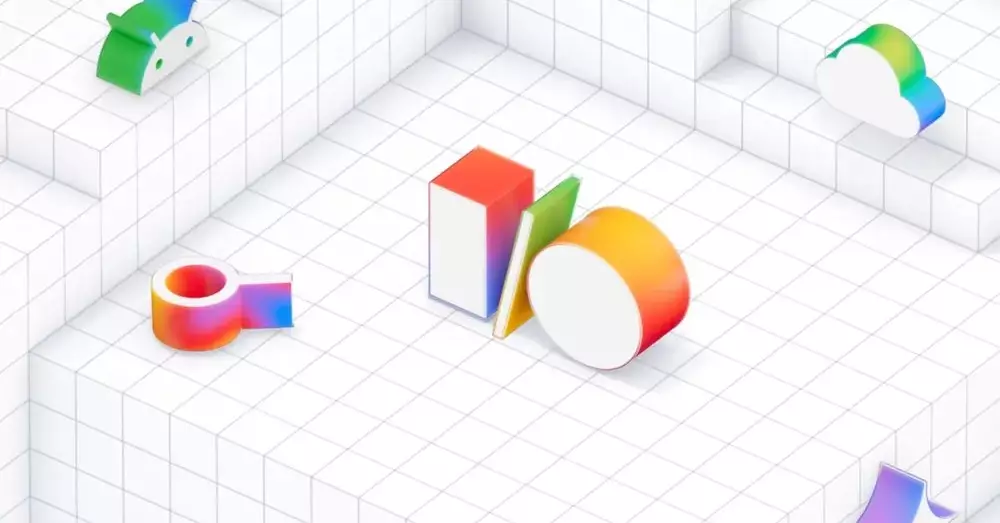Google’s annual I/O developer conference is a hallmark of innovation, a platform where tech enthusiasts gather to witness the cutting-edge advancements from one of the most influential companies in the world. This year, however, marks a significant shift in focus, with the spotlight shining predominantly on Artificial Intelligence (AI) and Extended Reality (XR). Unlike previous years where major Android OS updates were the main attraction, this year’s keynote promises to delve deep into the realm of AI, reflecting both the current technological zeitgeist and Google’s strategic ambitions.
With the likes of OpenAI, Meta, and Microsoft doubling down on their own AI advancements, Google’s focus on Gemini—a powerful AI model—will undoubtedly be a captivating topic. This race for AI supremacy has escalated remarkably, and Google’s ability to innovate in this domain will likely influence not only their market share but also set benchmarks for what can be achieved with AI technologies moving forward. The anticipation surrounding new features and capabilities of Gemini, especially in relation to mobile devices, suggests that Google is not merely playing catch-up; it is engaging in a strategic recalibration of its offerings in order to communicate the strength of its AI initiatives.
Embracing Extended Reality: A New Era of Interaction
While AI is set to dominate the conversation, updates on XR are also on the agenda. The integration of AI into XR technologies presents a tantalizing glimpse into what the future might look like for how we interact with the digital world. Google’s reported programming advancements that support its XR initiatives opens doors for expanded realities that could redefine user engagement with technology. The anticipated discussion around prototype smart glasses is particularly exciting, as it suggests that Google is not only competing with other tech giants but is also pushing the boundaries of how we perceive augmented and virtual environments.
The timing of Google I/O presents an intriguing juxtaposition with Microsoft’s Build developer event, held just a day prior. This back-to-back schedule means that both companies may draw comparisons in their AI and XR strategies, and Google will be keen to ensure its innovations resonate powerfully in contrast to Microsoft’s announcements. In an environment where technological advancements are rapidly evolving, the stakes have never been higher for companies to present their visions compellingly.
Expectations and Speculations: What Will Be Revealed?
Despite the overshadowing of Android OS announcements at this year’s I/O, it is essential to note that Google has shifted its tactics away from traditional product launches. The likelihood of unveiling new Pixel phones or Nest devices is slim, as it appears these announcements may have already been reserved for an earlier date. Instead, a more cohesive narrative surrounding AI and XR innovations is expected, painting a picture of how these two fields will converge more significantly in the coming years.
As we anticipate the keynote, expectations remain high for tangible demonstrations of Google’s new technologies. With aspirations to influence how information is processed and consumed, the integration of AI with XR may yield tools that enhance not only entertainment experiences but also productivity and learning. Attendees and viewers alike will be looking for practical applications of these technologies that showcase real-world impacts rather than merely theoretical advancements.
Embracing Innovations: The Road Ahead
The rising importance of AI and XR in today’s tech landscape cannot be overstated, and Google’s decision to prioritize these areas in its I/O conference speaks volumes about its vision for the future. By fostering innovations that intertwine both domains, Google is positioning itself not just as a player in the industry but as a leader shaping how technology can interconnect with daily life in increasingly sophisticated ways.
The excitement surrounding I/O is palpable, although it extends beyond mere product launches. The showcase represents a broader narrative—a testament to human ingenuity and the relentless pursuit of enhancing how we interact with our world through technology. This evolution, driven chiefly by advancements in AI and XR, holds the promise of a future where our understanding of reality might be forever altered, and where innovation leads seamlessly into everyday existence. Google I/O 2023, therefore, is not just about what’s next—it’s a glimpse into a transformative trajectory that could redefine our relationship with technology.


Leave a Reply